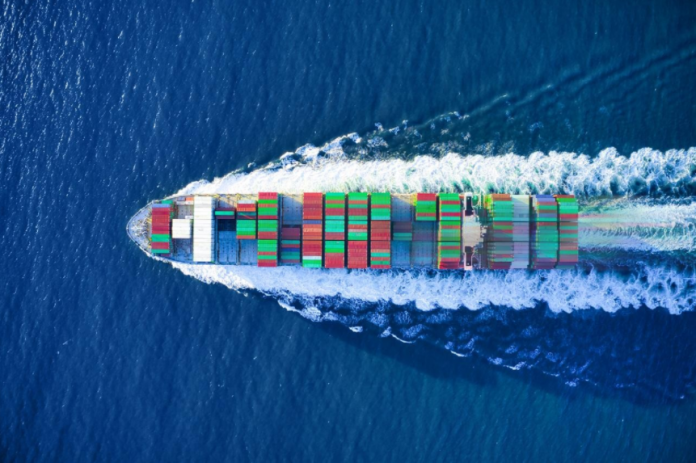The global shipping industry is under significant pressure to reduce its carbon emissions, risking pariah status if it fails to deliver.
Contributing between 2.5% and 3% of all greenhouse emissions – more than the whole of Germany – its lack of progress incurred the wrath of UN secretary general Antonio Guterres, who criticised the IMO in the run-up to the COP26 climate change conference last year.
The IMO’s strategy was for a 40% reduction in carbon emissions by 2030 against a 2008 benchmark, but in the wake of COP26 the organisation agreed to revise its plans, which its Marine Environment Protection Committee will consider in Spring 2023.
Yet disputes on how the shipping industry can reduce its carbon emissions threaten to drag on just as the UN, the EU, and national governments look to impose a patchwork of restrictions. The prime example is the opposition to last year’s plan for a $5bn fuel levy administered by the International Maritime Research Board to fund research into green alternatives. This has foundered on concerns over governance. As observers point out, it is not a great look when many shipping lines have experienced a highly profitable year.
The need for solutions and agreements is becoming ever more urgent. In Europe, the EU Parliament is imposing an entire series of carbon restrictions on shipping. Brussels has set a target for carbon-neutrality by 2050, aiming to reduce transport emissions by 90%. With the US also looking to tighten up on maritime greenhouse gas emissions and companies like Amazon and Unilever signing a pledge to move goods only on carbon-neutral vessels by 2040, the pressure is mounting.
This unrelenting focus on emissions reductions is feeding through trade finance. The integration of ESG (environmental, social, and governance) standards into operational and financial decision-making processes is affecting the ability of charterers, forwarders, and carriers to access finance.
Attempts to link ship financing to decarbonisation and environmentally-favourable behaviour go back a few years. The Poseidon Principles, launched in June 2019, have achieved uptake with 27 financial institutions. They are applicable to lenders, lessors, and financial guarantors including export credit agencies, establishing a global baseline on whether financial institutions’ lending portfolios are in line with adopted climate goals, including those of the IMO. Those signing up include BNP Paribas, Citi, and Société Générale, representing nearly 50% of the global ship finance portfolio.
The maritime industry should implement the technology to screen and demonstrate compliance
While arguments about fuels and engines continue, the shipping industry as a whole needs greater transparency when it comes to climate change. National and international monitoring organisations, port authorities, and banks need to be able to see evidence that charterers and operators are using vessels that have low or zero-carbon, and that they move at a fuel-efficient speed along the best route possible.
Carriers and their customers – including the commodity companies that may have hundreds of vessels under charter at any time – need the ability to show they are doing the right thing. And the information they provide should be current and verifiable for its accuracy and timeliness. The problem, of course, is that most organisations in shipping or trade finance do not have sufficient expertise in carbon emissions and sustainability. The effort to upskill and then conduct screening of vessels, cargoes, counterparties, and routes is significant and time-consuming.
Thankfully, the technology to do this is already available. Financial organisations currently use software to screen trade transactions for compliance with anti-money laundering and international sanctions compliance. The databases they access are highly detailed and authoritative.
Similar approaches are implementable for greenhouse gas and broader climate change and sustainability requirements. Expert companies now conduct carbon emissions measurement for individual vessels, using recognised techniques correlating fuel-type to cargo and route. They can monitor hundreds of thousands of vessels at any time. The outputs of this screening and monitoring are verified by highly reputable third-party organisations.
Monitoring solutions will integrate this high-quality data into workflows within existing systems, such as those screening for sanctions compliance. This enables charterers and banks to rate a vessel, its peer group and its carbon tonne per mile within a matter of seconds, while also producing an essential audit trail. Legal, risk, and compliance departments use the audit to review a transaction, saving time and providing access to expertise in carbon screening.
For shippers and operators this gives them the evidence they need to prove they are en route to reducing their carbon emissions and following best-practice, providing evidence in easily transferable digital format. This provides the necessary visibility to commodity companies, charterers, banks, port and flag authorities. With carbon-reduction regulation almost inevitable, having digital evidence to demonstrate compliance to future regulators provides real competitive advantage to those that have it.
With the tide of regulation likely to come in at a rapid pace, operators and charterers need to show they have kept up and are not climate change pariahs. That includes choosing the right ships and selecting the best routes in the most efficient and compliant manner, using fuels that meet sustainability criteria.
Major changes are afoot in the shipping industry. Operators and their customers need access to technology that will accurately monitor emissions sustainability right along the supply chain. If charterers, operators and banks can build this into their current infrastructure and systems, they will have a solution for the long term.
Author of the article: Simon Ring, Global Head of Maritime Trade Technologies & ESG, Pole Star
 Simon heads up Pole Star’s global regulatory technologies and PurpleTRAC systems, working with trade financing banks, commodity trading companies, maritime insurers, flag administrations and governments with sanctions and sustainability regulatory exposures in maritime trade and its supply chains. Under Simon’s leadership, PurpleTRAC has developed into an end-to-end solution covering the full spectrum of risk intelligence across sanctions, compliance, and sustainability in global maritime trade, and has been awarded for RegTech innovation by MAS, GTR, Citi Bank, and Microsoft.
Simon heads up Pole Star’s global regulatory technologies and PurpleTRAC systems, working with trade financing banks, commodity trading companies, maritime insurers, flag administrations and governments with sanctions and sustainability regulatory exposures in maritime trade and its supply chains. Under Simon’s leadership, PurpleTRAC has developed into an end-to-end solution covering the full spectrum of risk intelligence across sanctions, compliance, and sustainability in global maritime trade, and has been awarded for RegTech innovation by MAS, GTR, Citi Bank, and Microsoft.
Prior to joining Pole Star in 2010, Simon worked in financial services, acting as Divisional Managing Director of Derivatives at Tullett Prebon in London, and spending 8 years in Geneva as Managing Director of Cedef Capital Markets.







